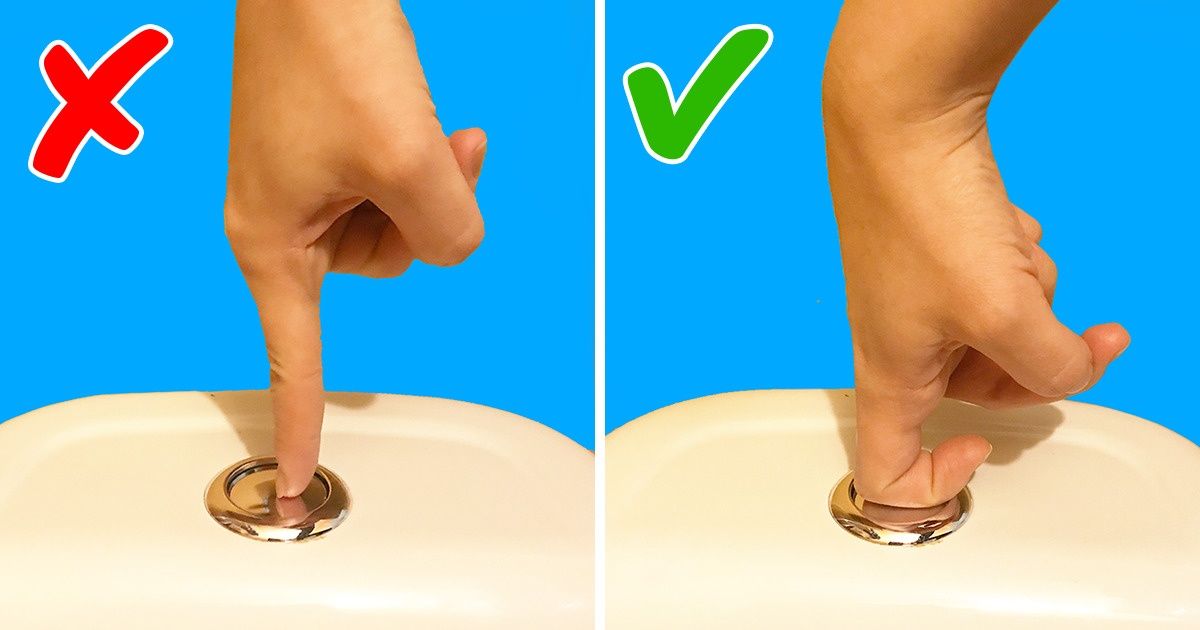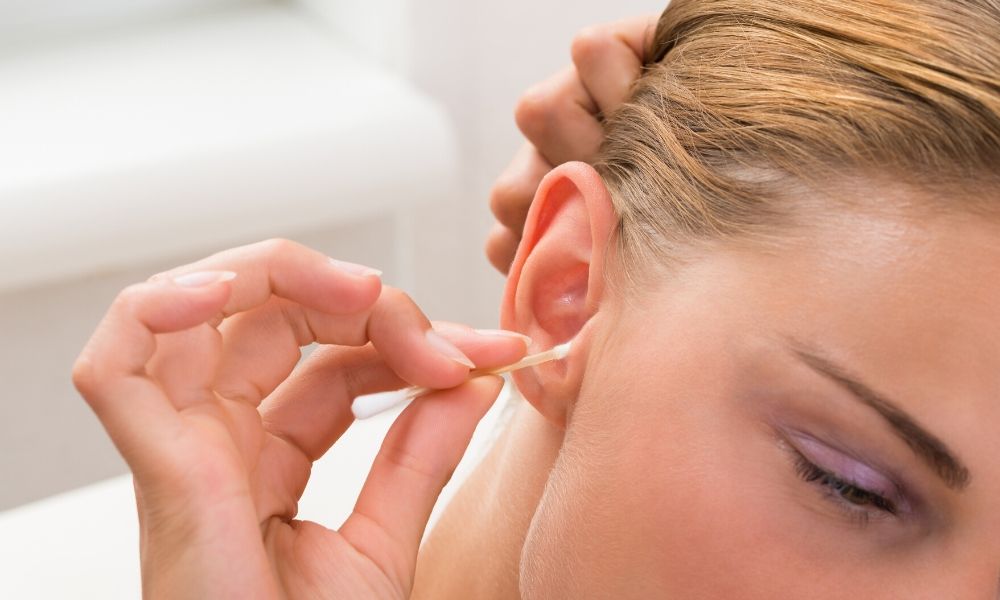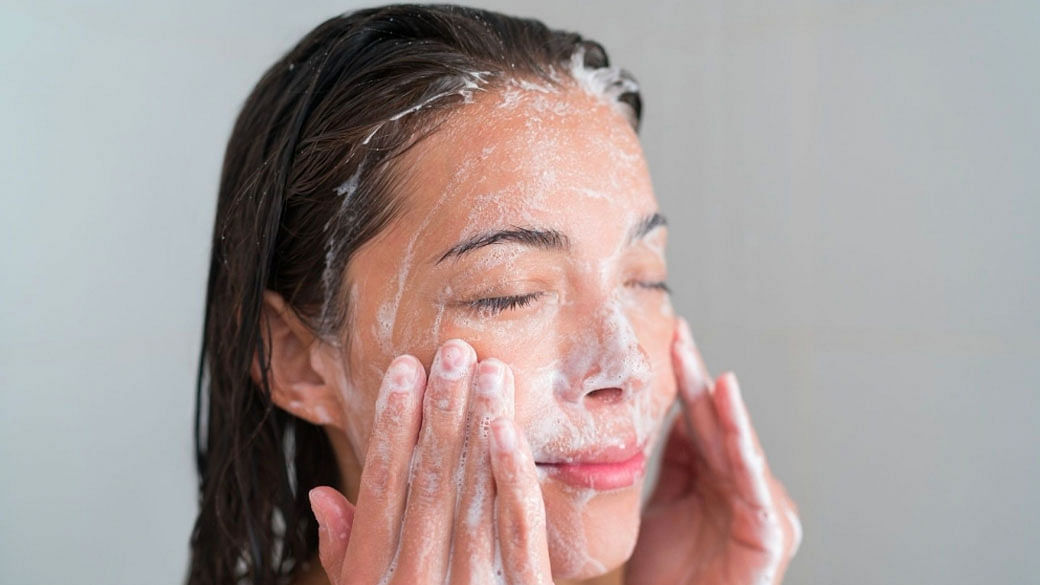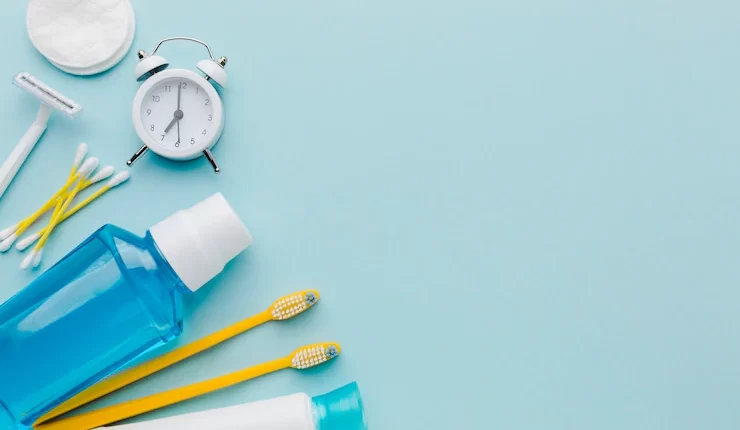13 Personal Hygiene Mistakes You Should Stop Doing – Most of us have started to receive personal hygiene instruction since we were small kids.
At a young age, children are taught how to do everything from washing their hands before eating to brushing their teeth, taking a bath, and putting on clean clothes. These routine behaviors turn into habits. It doesn’t stop there, though.

In fact, as a step toward a healthier and disease-free lifestyle, we adults are becoming even more hygiene-conscious. Yet, many of us are unknowingly repeating certain typical hygiene errors when it comes to our personal hygiene.
But, what is personal hygiene?
One way to take care of one’s body is through personal cleanliness. Bathing, cleaning your hands, brushing your teeth, and other hygiene practices are included in this activity.
Millions of external viruses and bacteria come into contact with you every day. They might leave a lasting impression on your body and occasionally even make you feel ill.
Keeping yourself and others around you healthy can be done by practicing good personal hygiene. You might feel more confident in your appearance as a result of them.
Why is it important?
To stay tidy and presentable, one must practice good personal hygiene. It significantly enhances your whole personality and is a crucial component of grooming.
Not only that, but maintaining proper sanitation guards against a number of diseases and slows the transmission of infection from one person to another.
But you have to do it correctly for it to function. Unfortunately, many individuals have fallacies about the basic concepts, which this article can assist in rectifying.
Here are some personal hygiene blunders you should avert in order to adopt healthy habits and live a healthier life.
13 Personal Hygiene Mistakes To Avoid
Keeping yourself clean is crucial. It not only boosts your sense of style but also paves the way for overall physical wellness and happiness. Nevertheless, there are some personal hygiene errors that could be harmful.
You need to stop making these 13 personal hygiene blunders that have been listed below.

1. Brushing And Flossing Your Teeth Too Vigorously
While you might believe that vigorous brushing can help eliminate the difficult-to-remove dental plaque and stains, it actually damages your tooth enamel and delicate gum tissue. In addition to other undesirable effects, this may cause the gums to recede and bleed.
Like cleaning, flossing may appear like a tedious task, but it is an essential part of maintaining good oral hygiene that you must not neglect.
If you don’t floss once each day, bacteria can form within your mouth and potentially cause issues with your gums.
What harm does it do?
Flossing, along with brushing your teeth thoroughly, aids in maintaining healthy gums by removing bacteria from below the gumline and avoiding gum recession, gingivitis, and bad breath.
Therefore, it is advised to brush your teeth entirely but gently on all surfaces and to floss once each day.
2. Excessive Facial Cleansing
Some people erroneously think that washing their faces more will make them cleaner. However, using too much water or cleaner might actually harm the delicate skin of your face. Your skin becomes dry, rough, and irritated as a result of being deprived of its natural lipids.
The sebaceous glands under the skin are stimulated by the lack of moisture to generate more oil to make up for the dryness.
The extra sebum then plugs your pores, resulting in acne outbreaks. Furthermore, drier skin is more likely to crack, which will weaken its barrier properties.
Additionally, over-washing your face might alter the pH balance of your skin, which encourages bacterial growth.
Professional advice for glowing skin
The advice of skin care professionals is to wash your face twice daily, first in the morning and again at night. You can even omit the morning session as your skin is already largely clean after getting up.
But to get rid of the grime, dead skin cells, makeup, skin care products, sweat, oil, and bacteria that have gathered throughout the day, you must always rinse and cleanse your face before heading to bed. This enables your skin to breathe and restore itself over the night for a clean, radiant complexion the following morning.
3. Exfoliating Excessively
Your skin receives a deep clean via exfoliation, which removes pollutants from your pores. Additionally, it makes your skin’s dead cells that have accumulated on the surface easier to remove, revealing your skin’s fresh, new skin beneath.
However, excessive or aggressive exfoliation can actually remove your face’s natural oils and even cause rips in the delicate facial skin. Therefore, it’s crucial to apply it gently and only twice or three times every week.
Additionally, avoid scrubbing over pimples that are still active because doing so could cause them to burst and transfer contagious pus to the nearby skin.
4. Cleaning The Interior Of Your Ears

In order to remove wax buildup within the ear, cotton swabs or Q-tips are commonly used, although this practice is becoming less and less recommended by doctors due to its potential for severe damage.
To begin with, the ear cavity’s inner walls are incredibly brittle and are quickly harmed by these blunt objects. Additionally, using a Q-tip too deeply might burst your ear drum and cause hearing loss by pushing wax farther into the ear canal.
How to clean?
Instead of forcing the Q-tip inside the ear, you should use it to delicately wipe the wax and dead skin that have gathered on the outer edge of the ear.
If you grasp how to use earwax drops properly, you might think about utilizing them for deeper cleansing. Before using any product, it is recommended to read the product label’s directions and consult with your doctor.
Furthermore, the debris in your ear is dislodged by earwax drops, which then travel to the surface and can be cleaned out with a Q-tip.
5. Omitting Thorough And Frequent Handwashing
Your hands gather up germs and bacteria from numerous contaminated surfaces as you use them to touch and grasp objects. By using dirty hands to prepare or consume food, you run the risk of ingesting the germs and contracting gastroenteritis or other ailments.
Similar to this, touching your face with unclean hands can spread bacteria to your skin, nasal passages, and mouth, resulting in infection. Additionally, contacting other people exposes you to the germs that cause infections.
Why is it crucial to wash your hands often?
Therefore, it is crucial to practice good hand hygiene, which calls for washing your hands often with soap and water, particularly after using the restroom, petting an animal, talking to someone who has a cold or cough, and before food preparation.
This straightforward act can protect you and others from a number of common illnesses. In contrast, handwashing is one of the best ways to avoid illnesses, according to the Centers for Disease Control and Prevention (CDC) in the USA.
6. Improperly Cutting Your Nails
Too short of a nail cut exposes the delicate nail bed, which is easily harmed and infected.
Additionally, the nail bed has numerous nerve endings, making it extremely delicate. Hence, rubbing or touching a hard surface will harm the exposed cuticles.
What harm does it do?
In an effort to give the nail shape, many also make the error of rounding the edges. Painful punctures are made to the nearby flesh while the nail plate regrows.
Some make the mistake of using a pair of scissors to trim their nails. However, using a nail clipper to cut your nails cleanly across the cuticle and a nail file to soften the jagged edges is highly advised.
7. Covering Mouth With Hand While You Sneeze Or Cough
Respiratory and salivary droplets that carry infection-causing microorganisms are released into the air when someone coughs or sneezes.
Anybody nearby who breathes in one of these droplets could contract the virus. Additionally, they could fall on nearby objects, which, when touched, will infect your hands with the same infection-causing microbes.
Therefore, it’s crucial to cover your mouth and nose when you sneeze or cough to prevent the discharge of these contagious particles.
Why avoid hands while you sneeze?
Impulsively, many do this with their hands, but this merely spreads the bacteria to their hands. Due to their contaminated hands, the virus may therefore spread to other people.
Therefore, whenever you feel a sneeze or cough coming on, it is best to cover your mouth and nose with clean tissue. Instead of saving the used tissue for later use or storing it somewhere else, make sure to dispose of it in a trash can.
If you don’t have access to a tissue right away, tuck your face into your elbow or shoulder.
8. Skipping Post-Workout Showers
Being fit and getting in shape can be accomplished by exercising. Your body temperature increases as a result of the workout, and through perspiration, the body dispels extra heat.
In other terms, sweating is a means for the body to reduce its internal temperature so that it gets back to normal.
Say bye-bye to sweaty clothes
Your workout attire becomes wet from absorbing this sweat. This moist and warm setting makes a great home for germs that could spread to your skin and cause an infection.
Therefore, it’s crucial to shower and change out of your wet gym clothes as quickly as possible following the workout. The threat of infection increases as you wait longer.
9. Bathing Excessively
As the area of your body that is most exposed to the environment, your skin is constantly being subjected to dirt, sweat, oil, dead skin cells, and pathogens. For your skin to be able to breathe and operate correctly, it is crucial to take regular baths to remove these contaminants.
Nevertheless, you shouldn’t overdo it in the belief that the more you rinse your skin, the cleaner and healthier it will be.
Bathing frequently causes dry and itchy scalp?
It’s actually unhealthy for your skin and hair to take frequent or extended baths. Your skin and scalp get dry and itchy from the over-exposed use of soap and water, which removes the natural lipids from them.
In the meantime, dandruff and general discomfort are more common with a dry scalp. When your hair is exposed to water and shampoo on a daily basis, it also loses its luster and softness.
10. Applying Excessive Amounts Of Conditioner
Hair conditioner should only be applied to the hair strands, not the scalp, since doing so could block your hair follicles and slow down hair growth.
In addition, a coin-sized quantity is sufficient to cover the complete length and volume of hair. Some individuals overdo it and use a lot of conditioners, which can be challenging to cleanse.
The residue of the conditioner adheres to the hair, giving it a dirty, greasy appearance. Furthermore, the residue sticks to the scalp, blocking your pores and raising your risk of infection.
11. Missing Out On Intimate Hygiene
Both men and women frequently neglect to wash their genitalia as frequently as the rest of their bodies when it comes to personal cleanliness.
Regular grooming and cleaning of your private areas are crucial, but you must use the proper materials.
Why avoid soap?
The fragile skin in this area might become irritated by the harsh chemicals in regular soap. Additionally, it may alter the normal bacterial balance in your vagina, raising the risk of infection.
Therefore, it is advised that you utilize intimate hygiene products designed specifically for cleansing the nether areas when taking a regular shower.
Besides, when you are on your period, appropriate intimate hygiene is extremely critical.
12. Exchange Of Private Items
The term “personal items” refers to things like combs, towels, and toothbrushes for a purpose. It’s because they’re not meant to be shared; they’re just meant for your own use.
Although it should go without saying, many people undervalue the importance of this fundamental personal hygiene rule.
People frequently have no problems with borrowing or lending necessities like towels and brushes, not noticing that doing so can easily lead to the contracting and spreading of germs and diseases.
You must therefore make the investment in a personal comb, towel, etc., and only use those items for yourself.
13. Using Common Household Items Without Cleaning Them
You are not executing your work adequately if you are not sanitizing frequently used household devices, including remote controls, door handles, keyboards, smartphones, laptops, and showerheads.
To get rid of the disgusting bacteria and other germs residing on the surface, make sure to clean these typical household items periodically. It’s a significant step in the direction of preventing infection in both you and your loved ones.
Don’t ever bring electronics inside the restroom, either. Use a decent hand sanitizer, or at the very least, always wash your hands with soap and water before handling any of your electronic gadgets.
Five Tips To Maintain Personal Hygiene For Men

You must accomplish some tasks daily, or at the very least often, if you want to take proper care of yourself.
Although maintaining excellent hygiene is undoubtedly a component of self-care, not everyone was provided with the necessary resources as a child to form healthy hygiene habits.
Many people undoubtedly need to learn more about some crucial male hygiene guidelines that most people don’t realize males need to follow for a variety of reasons. And those can be seen below.
1. Shave frequently
Unkempt facial hair can make you look unattractive and detract from your physical appeal. Even if you wish to grow a beard, make sure to routinely cut it to avoid looking like a caveman.
2. Avoid donning stinky socks and shoes
We would define dirty shoes and socks as a stench strong enough to wake someone up from a coma. It is improper to put on the same pair of socks every day for a week.
Due to the sheer buildup of sweat, it not only renders your shoes and feet unclean but is also unsanitary. Similarly, to keep the stink away, talc or deodorant can be sprayed inside your shoes.
3. Relieve dry lips
If there’s one thing that women would like to keep soft, it’s your lips. Apply a lip balm or chapstick to them (there are more flavors available than strawberry).
Additionally, you can moisten dry areas like your elbows and knees. Apply it at night when no one is looking if you feel too miffed to do it in front of others.
4. Maintain good oral health
It’s imperative to brush your teeth! A man with foul breath has never managed to impress a woman. Develop the habit of cleaning your teeth twice so that you can have white, healthy teeth in addition to fresh breath. Additionally, it’s a good idea to have a mint before a date or meeting.
5. Trim your ear and nose hair
The hair on your head is fine, but it shouldn’t protrude past your ears or nose. Regularly clip it with a pair of scissors or a trimmer designed specifically to handle hair in these regions.
Even though having too much nose hair can be a little unpleasant, you shouldn’t get it totally cut off. Because of this, you won’t have any protection from the things that make you more susceptible to allergies, sinusitis, and respiratory infections.
Some Tips To Maintain Women’s Hygiene

Many of the same considerations apply to women’s personal hygiene as they do to men’s, although the particular focus is frequently given to female-specific body functions. Menstruation, sexual activity, and bodily needs for hygiene may all fall under this category.
And here we’ve provided some advice for maintaining your cleanliness.
1. Drink plenty of water
“You are what you eat,” is a proverb that we have all heard. In the case of your vagina, “you are what you consume.” Dehydration and sugary beverages both have the potential to disturb the bacterial balance in your vagina.
If you want to help your body flush out pathogens and maintain your vagina healthy and clean, make sure to drink lots of water.
2. Employ fresh towels.
Once you’re done using them, wash and replace your towel and washcloth. It’s not a good idea to reuse towels since bacteria can stick to them. You could become infected as a result of this.
3. Avoid wearing undergarments for a while
Nowadays, the majority of women all over the world wear underwear and panties as a matter of course and expectation.
According to research, however, going commando can really help avoid the buildup of extra moisture there and can also lower your risk of acquiring fungal infections, inflammatory infections, and bacterial translocation.
4. Get rid of pubic hair
Keep the region around your genitalia neatly clipped and groomed, as it all comes back to the issue of smell and wetness.
The more hair you have in that area, the higher your possibility of experiencing odor and moisture problems, which can lead to even more serious health problems like yeast infections and bacterial vaginosis.
13 Personal Hygiene Mistakes You Should Stop Doing | Continue to check our website for more articles of this kind. And, please use our comment section as well, we would love to hear from you.






